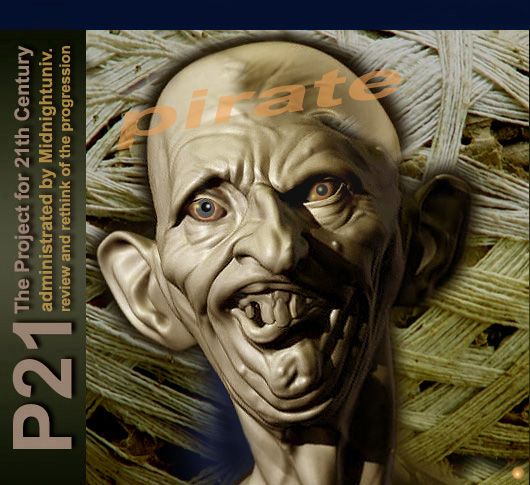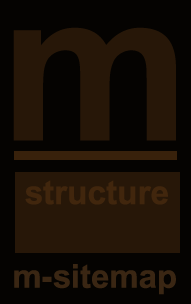



บรรณาธิการแถลง: บทความทุกชิ้นซึ่งได้รับการเผยแพร่บนเว็บไซต์แห่งนี้
มุ่งเพื่อประโยชน์สาธารณะ โดยเฉพาะอย่างยิ่ง เพื่อวัตถุประสงค์ในการขยายพรมแดนแห่งความรู้ให้กับสังคมไทยอย่างกว้างขวาง
นอกจากนี้ยังมุ่งทำหน้าที่เป็นยุ้งฉางเล็กๆ แห่งหนึ่งสำหรับเก็บสะสมความรู้ เพื่อให้ทุกคนสามารถหยิบฉวยไปใช้ได้ตามสะดวก
ในฐานะที่เป็นสมบัติร่วมของชุมชน สังคม และสมบัติที่ต่างช่วยกันสร้างสรรค์และดูแลรักษามาโดยตลอด.
สำหรับผู้สนใจร่วมนำเสนอบทความ หรือ แนะนำบทความที่น่าสนใจ(ในทุกๆสาขาวิชา) จากเว็บไซต์ต่างๆ
ทั่วโลก สามารถส่งบทความหรือแนะนำไปได้ที่ midnightuniv(at)gmail.com
(กองบรรณาธิการมหาวิทยาลัยเที่ยงคืน: ๒๘ มกาคม ๒๕๕๐)

Pirate
Radio
Midnight University

![]()
ความเป็นมาของสื่อวิทยุเสรี
สื่อเพื่อสิทธิภาคประชาชน(ในต่างประเทศ)
Pirate Radio: วิทยุโจรสลัด-วิทยุนอกชายขอบของกฎหมาย
สมเกียรติ
ตั้งนโม : เรียบเรียง
หลักสูตรสื่อศิลปะ และการออกแบบสื่อ มหาวิทยาลัยเชียงใหม่
บทความเรียบเรียงต่อไปนี้
เป็นเรื่องของสื่อวิทยุที่ประชาชนพยายามเป็นเจ้าของ
โดยเหตุที่หลังจากกำเนิดวิทยุขึ้น รัฐได้พยายามเข้ามามีบทบาทเป็นเจ้าของแต่ผู้เดียว
เนื่องจากมันเป็นเครื่องมือที่ทรงประสิทธิภาพในการสื่อสารในหมู่ประชาชน
โดยเหตุนี้จึงมีการพยายามสร้างรูปแบบการอนุญาตขึ้นมาอย่างหลากหลาย และปิดป้าย
วิทยุที่ไม่ปฏิบัติตามกฎเกณฑ์เหล่านี้ว่า"วิทยุโจรสลัด" ซึ่งมีความเป็นมาที่น่าสนใจ
อันที่จริงแล้วความพยายามของภาคประชาชนดังกล่าว ถือเป็นคนกลุ่มแรกๆ ที่ทำให้
สื่อเป็นประชาธิปไตย หลุดออกมาจากการควบคุมของรัฐและภาคธุรกิจโดยลำดับ
บทความนี้ นำเสนอสองภาษา ผู้สนใจภาษาอังกฤษโปรดคลิก English
Version
midnightuniv(at)gmail.com
บทความเพื่อประโยชน์ทางการศึกษา
ข้อความที่ปรากฏบนเว็บเพจนี้
ได้รักษาเนื้อความตามต้นฉบับเดิมมากที่สุด
เพื่อนำเสนอเนื้อหาตามที่ผู้เขียนต้องการสื่อ กองบรรณาธิการเพียงตรวจสอบตัวสะกด
และปรับปรุงบางส่วนเพื่อความเหมาะสมสำหรับการเผยแพร่ รวมทั้งได้เว้นวรรค
ย่อหน้าใหม่ และจัดทำหัวข้อเพิ่มเติมสำหรับการค้นคว้าทางวิชาการ
บทความมหาวิทยาลัยเที่ยงคืน
ลำดับที่ ๑๔๐๘
เผยแพร่บนเว็บไซต์นี้ครั้งแรกเมื่อวันที่
๑๒ พฤศจิกายน ๒๕๕๐
(บทความทั้งหมดยาวประมาณ
๑๘ หน้ากระดาษ A4)
++++++++++++++++++++++++++++++++++++++++++

ความเป็นมาของสื่อวิทยุเสรี
สื่อเพื่อสิทธิภาคประชาชน(ในต่างประเทศ)
Pirate Radio: วิทยุโจรสลัด-วิทยุนอกชายขอบของกฎหมาย
สมเกียรติ
ตั้งนโม : เรียบเรียง
หลักสูตรสื่อศิลปะ และการออกแบบสื่อ มหาวิทยาลัยเชียงใหม่
ความนำ
ศัพท์คำว่า"วิทยุโจรสลัด" ปกติแล้วเป็นการอ้างถึงการส่งสัญญานวิทยุที่ผิดกฎหมายหรือไม่ถูกกฎเกณฑ์
ศัพท์ดังกล่าวธรรมดาแล้วใช้เพื่ออธิบายการส่งสัญญานที่ไม่ถูกต้องตามตัวบทกฎหมาย
ทั้งรายการบันเทิง หรือเพื่อวัตถุประสงค์ในทางการเมือง ฯลฯ แต่บางครั้งก็ถูกใช้อธิบายถึงวิทยุโต้ตอบ
- การสื่อสารที่โต้ตอบกันได้สองทาง (อย่างที่ทางราชการทหารและตำรวจใช้ - two-way
radio). สำหรับเรื่องของระเบียบกฎเกณฑ์ต่างๆ ค่อนข้างผันแปรไปมา จากประเทศหนึ่งสู่อีกประเทศหนึ่ง
ในบรรดาประเทศอย่างเช่นสหรัฐอเมริกา และหลายประเทศในทวีปยุโรป มีใบอนุญาตวิทยุอยู่ด้วยกันหลายแบบ
และบ่อยครั้งศัพท์คำว่าวิทยุโจรสลัด โดยทั่วไป อธิบายถึงการส่งสัญญานที่ไม่มีใบอนุญาตของวิทยุ
FM, AM, หรือวิทยุคลื่นสั้นที่รายงานข่าวครอบคลุมพื้นที่โดยเฉพาะ ซึ่งบรรดาผู้ฟังสามารถรับสัญญานได้
บางครั้งสถานีวิทยุต่างๆ ที่ทำการส่งสัญญานถูกเข้าใจว่าถูกต้องตามกฎหมาย แต่อันที่จริงสัญญานที่รับได้อาจไม่ถูกกฎหมายก็ได้ และได้รับการพิจารณาว่าเป็นสถานีวิทยุโจรสลัด(pirate stations) - โดยเฉพาะอย่างยิ่ง เมื่อสัญญานวิทยุดังกล่าวข้ามเขตพรมแดนประเทศเข้ามา. ในบางกรณี การออกอากาศอาจได้รับการพิจารณาว่า"โจรสลัด" ทั้งนี้เนื่องมาจากธรรมชาติเกี่ยวกับเนื้อหาของมัน หรือลักษณะรูปแบบการถ่ายทอดของมัน (โดยเฉพาะ ที่ไม่อาจแสดงตัวหรือระบุสถานีส่งได้ตามกฎเกณฑ์) หรือกำลังส่งของสถานีไม่ถูกระเบียบ (หน่วยเป็น wattage) กล่าวคือ การส่งสัญญานนั้นไม่ถูกต้องตามกฎหมายในเชิงเทคนิค (ยกตัวอย่างเช่น พวก webcast หมายถึง ไฟล์สื่อที่เผยแพร่บนอินเตอร์เน็ตโดยใช้เทคนิคสตรีมมิงมีเดีย, หรือ ham radio ซึ่งหมายถึงพวกสถานีวิทยุสมัครเล่น หรือเป็นส่วนตัวที่ผลิตขึ้นมาเป็นงานอดิเรก หรือเพื่อบริการสาธารณะ)
ด้วยเหตุนี้ คำว่า"วิทยุโจรสลัด" บางครั้งจึงสามารถมีความหมายแตกต่างกันไปได้. สถานีวิทยุโจรสลัดบางคราวได้รับการเรียกว่า bootleg stations (ศัพท์คำหนึ่งซึ่งเชื่อมโยงกับวิทยุโต้ตอบ [two-way radio]โดยเฉพาะ), clandestine stations (สถานีลับ-ส่วนตัว), หรือ free radio stations (สถานีวิทยุเสรี)
เนื้อหาของบทความ
1. ประวัติศาสตร์วิทยุโจรสลัดและตัวอย่าง
2. วิทยุเสรี
3. วิทยุโจรสลัด โดยพื้นที่ทางภูมิศาสตร์
4. สื่อใหม่กับวิทยุโจรสลัด
5. วิทยุโจรสลัดในเอเชีย
1. Pirate radio history
and examples - (ประวัติศาสตร์วิทยุโจรสลัด และตัวอย่าง)
เดนมาร์ก เป็นที่รู้จักว่ามีสถานีวิทยุโจรสลัดขึ้นในโลกเป็นครั้งแรก เพื่อส่งสัญญานวิทยุเชิงพาณิชย์
จากบนเรือในน่านน้ำสากล โดยไม่ได้รับอนุญาตจากเจ้าหน้าที่หรือผู้มีอำนาจในประเทศที่ได้ส่งสัญญานไปถึง
สถานีวิทยุดังกล่าวถูกตั้งชื่อว่า Radio Mercur (*) และเริ่มถ่ายทอดสัญญานครั้งแรกในวันที่
2 สิงหาคม 1958 (สิ้นสุดลงในวันที่ 31 กรกฎาคม 1962). ในหน้าหนังสือพิมพ์เดนมาร์กได้เรียกสถานีวิทยุดังกล่าวว่า"วิทยุโจรสลัด"(pirate
radio) เนื่องจากว่าได้มีการส่งสัญญานมาจากท้องทะเล
(*) Radio Mercur was a Danish offshore broadcasting
commercial radio station. Started regular transmission on August 2nd 1958
and ceased officially on July 31st 1962.
ในประเทศอังกฤษ ช่วงทศวรรษที่ 1960s ศัพท์คำนี้เป็นการอ้างถึงไม่เพียงการขโมยรับคลื่นสัญญานที่ดำเนินการโดยรัฐ โดยบรรดาผู้ส่งสัญญานที่ไม่มีใบอนุญาตทั้งหลายเท่านั้น แต่ยังหมายถึงธรรมชาติความเสี่ยงเกี่ยวกับวิทยุนอกชายฝั่งต่างๆ ซึ่งอันที่จริงปฏิบัติการมาจากบนเรือที่ทอดสมอหรือมีฐานปฏิบัติการอยู่ในท้องทะเลด้วย. ตัวอย่างที่ดีเกี่ยวกับการกิจกรรมนี้ก็คือ Radio Luxembourg ที่ตั้งอยู่ที่ Grand Duchy ของ Luxembourg. มีการส่งสัญญานเป็นภาษาอังกฤษในช่วงเย็นจาก Radio Luxembourg ซึ่งได้รับการส่งอย่างตั้งใจไปสู่ British Ises (Ireland and Great Britain) โดยผู้ถ่ายทอดสัญญานที่ได้รับอนุญาตจาก Luxembourg
ขณะที่ผู้ฟังที่สนใจในสหราชอาณาจักร เดิมทีฟังจากวิทยุของพวกเขาโดยการได้รับใบอนุญาต(wireless License)จากกรมไปรษณีย์อังกฤษ(General Post Office [GPO]) แต่อย่างไรก็ตาม ภายใต้กรณีของใบอนุญาตดังกล่าว ได้มีการกระทำผิดภายใต้กฎหมายโทรเลขไร้สาย(Wireless Telegraphy Act) ในการฟังการถ่ายทอดสัญญานจากผู้ไม่มีอำนาจหน้าที่ ซึ่งเป็นไปได้ว่ารวมถึงการถ่ายทอดสัญญานเหล่านั้นของ Radio Luxembourg. ด้วยเหตุนี้ หากเจ้าหน้าที่อังกฤษเอาใจใส่, Radio Luxembourg ก็จะกลายเป็นสถานีวิทยุโจรสลัดไปทันที และบรรดาผู้ฟังทั้งหลายของอังกฤษก็จะละเมิดกฎหมาย (แม้ศัพท์คำว่า"ไม่มีอำนาจ"[unauthorised]ไม่เคยได้รับการนิยามว่า มันคือพื้นที่สีเทาที่ค่อนไปทางถูกกฎหมาย) ซึ่งอันนี้มิได้หยุดยั้งให้หนังสือพิมพ์อังกฤษ งดตีพิมพ์ตารางรายการส่งสัญญานของสถานีวิทยุดังกล่าว หรือนิตยสารรายสัปดาห์ของอังกฤษที่มีเป้าหมายยังวัยรุ่นสาวๆ, "Fab 208" จากการส่งเสริมบรรดาดีเจ(deejay - คนเปิดแผ่นเสียงหรือซีดี ซึ่งเป็นคำย่อมาจาก disc jockey) และสไตล์การใช้ชีวิตของคนเหล่านั้น (Radio Luxembourg's wavelength was 208 metres)
ภายหลัง Radio Luxembourg ได้เข้าร่วมกับสถานีวิทยุโจรสลัดอีก 2 แห่ง ซึ่งเป็นที่รู้จักกันดี และรับฟังกันในอังกฤษซึ่งฝ่าฝืนเรื่องใบอนุญาต นั่นคือ สถานีวิทยุ Radio Caroline และ Radio London, ทั้งสองสถานีส่งสัญญานมาจากเรือที่ทอดสมออยู่นอกเขตแดน และด้วยเหตุนี้มันจึงถูกต้องตามกฎหมาย แต่ไม่มีอำนาจหน้าที่ในวิธีการที่เป็นอย่างเดียวกันกับสถานีวิทยุ Luxembourg. ที่จริงแล้ว สถานีวิทยุทั้ง 3 แห่งนี้ ได้มีการขึ้นทะเบียนอย่างเป็นทางการบนผืนแผ่นดินอังกฤษ
ที่ซึ่งไม่ได้เกี่ยวข้องกับการส่งสัญญานมาจากเรือนอกชายฝั่ง
ศัพท์คำนี้"วิทยุโจรสลัด"(pirate radio)ก็เป็นศัพท์ทางการเมือง เช่นเดียวกับศัพท์คำว่า"โจรสลัด"(pirate)
ที่หมายถึงธุรกิจเสี่ยงที่ผิดกฎหมาย โดยไม่คำนึงถึงสถานะทางกฎหมายที่แท้จริงของการส่งสัญญาน.
สถานีวิทยุ XERF (*) ซึ่งตั้งอยู่ที่ Ciudad Acu?a, Coahuila, เม็กซิโก, ข้ามไปถึง
the Rio Grande จาก Del Rio, เท็กซัส, สหรัฐอเมริกา ถือเป็นตัวอย่างหนึ่งที่กล่าวถึงนี้
(*) The call letters XERF-AM are assigned to a licensed
border-blaster radio station that was located in Villa Acu?a (later renamed
Ciudad Acu?a) and that was operated under the laws of Mexico.
ขณะที่ประเด็นของสถานีวิทยุเม็กซิโก
XERF มีใบอนุญาตในการส่งสัญญาน แต่กำลังส่งของมันสูงถึง 250,000 วัตต์ ซึ่งมากเกินกว่าสัญญานที่ได้อนุญาตไว้มากคือ
50,000 วัตต์เท่านั้น ที่ให้กับวิทยุเชิงพาณิชย์ และใช้กำกับโดยรัฐบาลของสหรัฐฯ.
ผลที่ตามมา XERF และสถานีวิทยุอื่นๆ เป็นจำนวนมากในเม็กซิโก ซึ่งได้ขายช่วงเวลาส่งสัญญานให้กับบรรดาสปอนเซอร์ทั้งหลายที่ทำรายการวิทยุพาณิชย์
และรายการทางศาสนาในภาษาอังกฤษ จึงถูกปิดป้ายฉลากเป็น Border blaster (วิทยุชายแดน)(*),
แต่ไม่ใช่สถานีวิทยุโจรสลัด แม้ว่าเนื้อหาของรายการของสถานีเหล่านี้เป็นจำนวนมากเป็นเรื่องที่ฝ่าฝืนกฎหมายสหรัฐฯ
ก็ตาม. บรรพบุรุษของ XERF ถือเป็นตัวอย่าง แรกเริ่มเดิมทีนั้นได้ส่งสัญญานในรัฐแคนซัส
ที่ให้การสนับสนุน goat-gland surgery (*) เพื่อปรับปรุงความเป็นชาย แต่ได้ย้ายไปยังเม็กซิโกเพื่อเป็นการหลบเลี่ยงกฎหมายสหรัฐฯ
เกี่ยวกับการโฆษณาทางการแพทย์ โดยเฉพาะอย่างยิ่ง วิธีการทางการแพทย์ซึ่งยังไม่ได้รับการพิสูจน์แต่อย่างใด
(*) A border blaster, in contrast to an international
broadcast station, is a licensed commercial radio station that transmits at
very high power to the United States of America from various Mexican cities
near the border. These are also sometimes referred to as "X Stations"
for their call letters: Mexican stations are assigned callsigns beginning
with X, whereas American stations begin with the letters W or K.
(*) goat-gland surgery
: ศัลยกรรมต่อมความเป็นชาย - คำว่า goat ในบางความหมาย คือ ชายที่เต็มไปด้วยกิเลสตัณหา
ในปี 1924 สถานีวิทยุนิวยอร์ค WHN ได้ถูกกล่าวหาว่าเป็นสถานีวิทยุนอกกฎหมาย โดย
AT&T (American Telephone and Telegraph Company) เกี่ยวกับการละเมิดใบอนุญาตทางการค้าที่ได้อนุญาตให้กับสถานีวิทยุ
AT&T เท่านั้นในการขายช่วงเวลาการถ่ายทอดสัญญาน. ผลลัพธ์เกี่ยวกับการตีความของ
AT&T ในกรณีดังกล่าวได้ถูกนำขึ้นสู่ศาล ซึ่งได้มีการแสดงความเห็นจากรัฐมนตรีพาณิชย์
Herbert Hoover เมื่อยืนอยู่บนแท่น ในฝ่ายที่ปกป้องจำเลย. แม้ว่า AT&T จะได้ชัยชนะในกรณีดังกล่าว
แต่ความเกรี้ยวกราดที่สร้างขึ้น กรณีเกี่ยวกับบทบัญญัติในการจำกัดขอบเขตเหล่านั้นในเรื่องการอนุญาตถ่ายทอดสัญญาน
ก็ไม่เคยถูกนำมาบังคับใช้เลย
2. Free radio (วิทยุเสรี)
ความผันแปรอีกอย่างเกี่ยวกับศัพท์คำว่า"วิทยุโจรสลัด"เกิดขึ้นในระหว่าง"ฤดูร้อนของความรัก"(summer
of Love)(*) ในซานฟรานซิสโก ช่วงวันเวลาของบรรดาฮิปปี้หรือบุปผาชนทั้งหลาย เมื่อสิ่งต่างๆ
มากมายได้ถูกตั้งชื่อนำหน้าว่า"เสรี"หรือ free. ยกตัวอย่างเช่น "free
store", "free love" และกระทั่ง "free radio", ซึ่งปกติเป็นการอ้างถึงการถ่ายทอดสัญญานวิทยุที่มาจากถิ่นฐานอันไม่เป็นที่เปิดเผย
และไม่ได้รับอนุญาต. สิ่งเหล่านี้ได้รับการติดป้ายในฐานะที่เป็นการถ่ายทอดสัญญานวิทยุโจรสลัดด้วย
(*) The Summer of Love was the summer of 1967, particularly
in the Haight-Ashbury district of San Francisco, where thousands of young
people loosely and freely united for a new social experience. As a result,
the hippie counterculture movement came into public awareness.
ศัพท์คำว่า"วิทยุเสรี" ได้ข้ามมหาสมุทรแอตแลนติค ที่ซึ่งมันได้ถูกรับเอาไปใช้โดย"สมาคมวิทยุเสรี"หรือ
Free radio Association ของกลุ่มผู้ฟังทั้งหลายที่ปกป้องสิทธิเกี่ยวกับสถานีวิทยุโจรสลัดนอกชายฝั่ง
ที่มีการส่งสัญญานมาจากบนเรือและแท่นฐานบนท้องทะเลนอกแนวชายฝั่งของสหราชอาณาจักร.
แต่อย่างไรก็ตาม ศัพท์คำว่า"วิทยุเสรี" ยังมีความหมายอีกอย่างด้วย
เพราะมันมีการแบ่งแยกความแตกต่างระหว่างรูปแบบอันนั้นของใบอนุญาตการส่งสัญญาน
ที่ได้รับการสนับสนุนโดยการขายช่วงเวลาออกอากาศเชิงพาณิชย์ ซึ่งใครก็ตามสามารถฟังได้โดยไม่ต้องเสียค่าใช้จ่าย
จากรูปแบบของการส่งสัญญานเชิงพาณิชย์ที่ได้รับอนุญาต (โดยเฉพาะอย่างยิ่ง โทรทัศน์)
ซึ่งบรรดาผู้ฟังทั้งหลายและโดยเฉพาะคนดูต้องบอกรับการเป็นสมาชิก. ปกติแล้วรูปแบบดังกล่าวถูกรู้จักในฐานะโทรทัศน์ที่ต้องจ่ายสตางค์นั่นเอง
หรือที่เรียกกันว่า Pay TV.
Felix Guattari ชี้แจงว่า:
"พัฒนาการทางด้านเทคโนโลยี และโดยเฉพาะอย่างยิ่ง การสร้างเครื่องส่งสัญญานให้มีขนาดเล็กลง
และข้อเท็จจริงที่ว่า พวกมันสามารถถูกรวมเข้ากันได้โดยบรรดามือสมัครเล่นต่างๆ,
"พบเจอ"กับกลุ่มก้อนของแรงปรารถนาด้วยวิธีการใหม่บางอย่างของการแสดงออก"(*).
ในยุโรป นอกจากการรับเอาศัพท์คำว่า"วิทยุเสรี"มาใช้, บรรดาผู้ฟังที่สนับสนุนสิ่งที่ถูกเรียกว่า"วิทยุโจรสลัด"ได้รับเอาศัพท์คำว่า"วิทยุนอกชายฝั่ง"(offshore
radio)มาใช้ด้วย ซึ่งปกติแล้ว เป็นศัพท์ที่ใช้กันโดยบรรดาเจ้าของสถานีถ่ายทอดสัญญานจากท้องทะเล
(*) Felix Guattari. "Plan for the Planet".
In Molecular Revolution. Psychiatry and Politics.
London: Penguin Books, 1984. p. 269.
ศัพท์อีกคำหนึ่งที่นิยมใช้ก็คือ Freebooter ถือเป็นความผันแปรของศัพท์คำว่า"วิทยุโจรสลัด"
และบางครั้งถูกนำมาใช้โดยสิ่งพิมพ์ทางธุรกิจในสหรัฐฯ เมื่อต้องการอธิบายถึงการถ่ายทอดสัญญานจากท้องทะเลในยุโรป.
ขณะที่วิทยุโจรสลัดเริ่มกลายเป็นศัพท์ในเชิงลบ ไม่น่าเชื่อถือ หรือกระทั่งไม่จริงจัง
ในอังกฤษต่อมาภายหลังมันได้ถูกยอมรับมากขึ้นในฐานะที่มีความหมายที่สอง เพื่อธิบายรูปแบบในลักษณะสุ่มเสี่ยงของการถ่ายทอดสัญญานที่ได้รับอนุญาต
ซึ่งมีรากเหง้าต่างๆ อยู่ในการส่งสัญญานที่ไม่มีใบอนุญาตนอกชายฝั่งจริงๆ. ในตอนจบของเรื่องนี้
ผู้มีอำนาจหน้าที่ออกใบอนุญาตในอังกฤษได้ยินยอมต่อสถานีวิทยุอิสระ(independent
stations) และให้สถานีวิทยุ BBC ท้องถิ่นแห่งหนึ่งใช้ชื่อนี้ด้วย ขณะที่รัฐบาลได้สงวนการใช้ศัพท์คำว่า"วิทยุโจรสลัด"
เพื่ออธิบายถึงสถานีวิทยุที่อยู่บนบกหรือในท้องทะเล ซึ่งมีการส่งสัญญานโดยไม่ได้รับอนุญาตและขัดกับกฎหมาย
3. Pirate radio by geographical
area (วิทยุโจรสลัด โดยพื้นที่ทางภูมิศาสตร์)
นับจากหัวเรื่องนี้ครอบคลุมทั้งเรื่องพื้นที่ต่างๆ ของชาติ, ท้องทะเลสากล, หรือระวางเนื้อที่ในอากาศซึ่งไม่มีเจ้าของ
วิธีการที่ทรงประสิทธิภาพอย่างหนึ่งในการรับรู้เกี่ยวกับเรื่องนี้ก็คือ การใช้พื้นฐานทางภูมิศาสตร์เกี่ยวกับเขตแดนประเทศ,
ท้องทะเลสากล, และระวางเนื้อที่ในอากาศนานาชาติมาทำความเข้าใจนั่นเอง. เพราะกฎหมายต่างๆ
มีการผันแปรไป ดังนั้นการตีความเกี่ยวกับศัพท์คำว่า "วิทยุโจรสลัด"
จึงได้รับการพิจารณาเปลี่ยนแปลงตามไปด้วย
คำถามต่างๆ ที่ได้ถูกหยิบยกขึ้นมา ส่วนใหญ่เป็นเรื่องเกี่ยวกับแบบแผนอันหลากหลายของการส่งสัญญานที่ได้รับการปฏิบัติโดยรัฐบาลแห่งชาติโดยทั่วไป ซึ่งมีส่วนไปกระทบกับผลประโยชน์ของรัฐบาลชาติอื่นๆ ดังนั้นจึงเป็นเหตุให้มีการสร้างสถานีวิทยุก่อกวนขึ้นที่เรียกว่า jamming stations ต่างๆ ทั้งนี้เพื่อต้องการส่งสัญญานรบกวนบนคลื่นวิทยุในความถี่เดียวกัน เพื่อทำลายความสามารถในการรับคลื่นสัญญานที่ส่งมานั่นเอง
ขณะที่ในสหรัฐอเมริกา ได้ถ่ายทอดสัญญานวิทยุรายการของตนเองไปสู่สหภาพโซเวียต, ซึ่งพยายามที่จะรบกวนการถ่ายทอดเหล่านี้. ในปี ค.ศ.1970 รัฐบาลของสหราชอาณาจักร ได้ตัดสินใจใช้การส่งสัญญานรบกวนเพื่อกลบการส่งสัญญานแทรกเข้ามาของสถานีวิทยุพาณิชย์ที่ชื่อว่า Radio North Sea International, สถานีวิทยุดังกล่าวมีฐานปฏิบัติการอยู่นอกประเทศ "the Motor Vessel (MV) Mebo II" (ซึ่งเป็นเรือที่ทอดสมออยู่นอกชายฝั่ง ทางด้านตะวันออกเฉียงใต้ของอังกฤษในทะเลเหนือ)
ตัวอย่างอื่นๆ เกี่ยวกับแบบฉบับนี้ของการส่งสัญญานที่ผิดปกติ
รวมถึง the Coast Guard Cutter USCGC Courier (*) ที่ทำหน้าที่เฝ้าระวังคอยตัดคลื่นสัญญานที่มาจากนอกชายฝั่ง
อันนี้ถือกำเนิดและถ่ายทอดสัญญานในฐานะที่เป็นส่วนหนึ่งของวิทยุเสียงอเมริกา(VOA
- Voice of America) ที่มีฐานสมอที่เกาะ Rhodes, Greece ถึงประเทศกลุ่มที่เป็นพันธมิตรกับสหภาพโซเวียต
(Soviet bloc countries) (*).
(*) USCGC Courier (WAGR/WAT-410) was a cutter in the
United States Coast Guard.
Originally launched in 1945 as the M/V Coastal Messenger, the United States
Coast Guard Cutter Courier was a joint operation between the United States
State Department and the United States Coast Guard. For twelve years during
the 1950's and 1960's, she served as a portion of the Voice of America radio
network during the Cold War, at a time when the Soviet Union had attempted
to jam portions of the network.
(*) During the Cold War, the term Eastern Bloc (or Soviet Bloc) was used to
refer to the Soviet Union and its allies in Central and Eastern Europe (Bulgaria,
Czechoslovakia, East Germany, Hungary, Poland, Romania, and-until the early
1960s-Albania). The label "Eastern Bloc" was also used to collectively
denote member states of the Warsaw Pact (a Soviet-dominated military organisation)
or the Comecon (an international economic organization of Communist states).
ลูกบอลลูนได้ถูกปล่อยให้ลอยเหนือบริเวณ Key West (ชื่อเมืองปลายสุดทางตอนใต้ของฟลอริดา)
เพื่อให้การสนับสนุนการถ่ายทอดสัญญานโทรทัศน์ของ TV Mart? (*) ซึ่งถูกมุ่งไปที่ประเทศคิวบา.
นอกจากนี้เครื่องบินที่ส่งสัญญานวิทยุทางด้านการทหาร ก็ถูกปล่อยให้ลอยอยู่เหนือน่านฟ้าในเวียดนาม,
อิรัก และประเทศอื่นๆ โดยบริหารและควบคุมโดยกองทัพอากาศสหรัฐฯ. สหภาพยุโรปได้ให้การสนับสนุนด้านการเงินแก่สถานีวิทยุ
ซึ่งทำหน้าที่ส่งข่าวสารและข้อมูลเข้าไปยังประเทศยูโกสลาเวียก่อนหน้านี้ จากสถานีบนเรือที่ทอดสมออยู่
ณ ท้องทะเลสากล
(*) TV Mart? was created by the US government to provide
news and current affairs programming to Cuba. It is named after Cuban independence
leader Jos? Mart?. The Cuban government has commonly insisted the penetration
of their airwaves violates international law.
4. New Media Pirate Radio (สื่อใหม่กับวิทยุโจรสลัด)
วิทยุโจรสลัดเป็นคำพ้องมาเป็นเวลายาวนานกับการส่งสัญญานวิทยุในระบบ AM (LW,MW
& SW) และ FM (VHF) ที่ไม่ได้รับอนุญาต และการส่งสัญญาวิทยุที่ทะลุทะลวงข้ามเขตพรมแดนประเทศเข้ามาส่วนใหญ่ของโลก
และโดยการมาถึงของระบบอินเตอร์เน็ต สถานีวิทยุแบบเดิมๆ จำนวนมากในระบบ AM/FM
ก็ได้ใช้เส้นทางบนเว็บไปพร้อมกันด้วย ซึ่งเรียงลำดับจากเครื่องส่งสัญญานวิทยุสาธารณะ,
วิทยุเชิงพาณิชย์ที่ได้รับอนุญาต, และในบางประเทศได้รวมถึงสถานีวิทยุต่างๆ ที่ได้รับการยกเว้นเรื่องใบอนุญาต
เนื่องจากกำลังส่งต่ำนั่นเอง
แม้วิทยุโจรสลัดจะกำลังเป็นที่รู้จักสำหรับการส่งสัญญานวิทยุ แต่รูปแบบใหม่อันหนึ่งของสถานีวิทยุโจรสลัด
ตอนนี้กำลังปฏิบัติการบนระบบออนไลน์ ลักษณะแตกต่างที่สำคัญก็คือ วิทยุโจรสลัดออนไลน์เหล่านี้
ปกติจะไม่มีการจ่ายค่าลิขสิทธิ์หรือค่าธรรมเนียมการเปิดเพลงแต่อย่างใด ซึ่งเป็นเช่นเดียวกับญาติพี่น้องสถานีวิทยุโจรสลัดในระบบ
AM/FM แบบเดิมๆ ส่วนใหญ่ของมัน. สถานีวิทยุโจรสลัดออนไลน์พวกนี้ ตามปกติแล้วจะดึงดูดผู้ฟังกลุ่มเล็กๆ
และเป็นผู้ฟังที่ซื่อสัตย์ และอาจจะไม่เป็นที่สังเกตโดยเจ้าหน้าที่ทั้งหลายเท่าใดนัก
ไม่เหมือนกับวิทยุโจรสลัดในระบบ AM/FM ซึ่งสามารถได้ยินได้ฟัง และติดตามร่องรอยได้ง่ายกว่า
กรณีเมื่อเร็วๆ นี้เกี่ยวกับวิทยุโจรสลัดออนไลน์ที่พบเห็นได้ในสหราชอาณาจักรคือ
Hitz Radio (UK) (*) [อันนี้จะต้องไม่สับสนกับ HitzRadio.com (USA)], ที่มีอิทธิพลดึงดูดความสนใจการเผยแพร่บนสื่อกระแสหลักมากในช่วงต้นปี
2007. การเผยแพร่ดังกล่าวเป็นผลมาจาก Ryan Dunlop ผู้เป็นเจ้าของสถานี ได้ตั้งชื่อ
Hitz Radio ขึ้นมา และเขาได้รับรางวัลทางธุรกิจมากมาย. หลังจากการเผยแพร่นี้
คนจำนวนมากที่มีความรู้ในอุตสาหกรรมวิทยุได้เริ่มหันมาให้ความสนใจสำรวจตรวจสอบสถานีดังกล่าว
ซึ่งอ้างว่ามีแฟนเป็นล้าน และผู้คนหลายหมื่นที่เป็นผู้ฟังผ่านระบบออนไลน์
ข้ออ้างต่างๆ เหล่านี้
พร้อมกับสาระอย่างอื่นๆ ถือเป็นส่วนหนึ่งของแฟ้มเอกสารที่มีการนำเสนอเพื่อขอรับรางวัลทางธุรกิจประเภทต่างๆ.
เมื่อคนในวงการอุตสาหกรรมได้ทำการตรวจสอบและสืบค้นถึงข้ออ้างเหล่านี้ ได้ส่งผลให้ตัวแทนลิขสิทธิ์ทางด้านดนตรีของสหราชอาณาจักรอย่าง
PPL และ MCPS-PRS Alliance ไล่ล่าค่าธรรมเนียมลิขสิทธิ์ย้อนหลัง ซึ่งเป็นหนี้โดย
Ryan Dunlop และ Hitz Radio. จากผลลัพธ์ดังกล่าวทำให้บรรดาผู้ฟังถูกกล่าวหาว่ากระทำผิดกฎหมายไปด้วย
ซึ่งเรื่องนี้วางอยู่บนพื้นฐานค่าธรรมเนียมย้อนหลังที่เป็นหนี้ค่าลิขสิทธิ์นั่นเอง
(*) Hitz Radio is a group of internet radio stations
based in Ayrshire, Scotland founded by Ryan Dunlop in 2006. Dunlop claims
his drivetime slot averages 80,000 listeners, and that he employs 40 staff.
These claims were disputed by various experts in the radio industry during
2007.
5. Pirate radio in Asia (วิทยุโจรสลัดในเอเชีย)
วิทยุโจรสลัดในประเทศจีนแผ่นดินใหญ่
ตามรายงาน สถานีวิทยุนอกชายฝั่งจำนวนมากมีฐานปฏิบัติการมาจากทางด้านทะเลจีนใต้
ส่วนใหญ่เพื่อวัตถุประสงค์ในทางการเมือง และสถานีวิทยุเหล่านี้รวมถึง วิทยุเสียงกองทัพปลดปล่อยของประชาชาชน,
เรดิโอแฟลช, วิทยุพายุเดือนตุลา, วิทยุประชาชนปักกิ่ง (Voice of the People's
Liberation Army; Radio Flash; The October Storm; Redifussion Central; Popular
of Peking).
ในปี ค.ศ. 1990-1991, มีวิทยุนอกชายฝั่ง 2 สถานี ซึ่งมีเจตจำนงเพื่อผู้ฟังชาวจีนได้เสนอข่าวสารสู่ผู้ฟังทั่วโลก. หนึ่งในนั้นคือ "วิทยุเทียนอันเหมิน"(Radio Tiananmen)(*), สถานีวิทยุนี้มีฐานปฏิบัติการในต่างประเทศ the MV Sarah (Lichfield I) และถูกเปลี่ยนชื่อเป็น Liberty (เสรีภาพ) ซึ่งบ้านเดิมของวิทยุสากลนิวยอร์ค(Radio Newyork International) ที่ส่งสัญญานในช่วงสั้นๆ ระหว่าง 2 ปีถัดมา ราวปลายทศวรรษที่ 1980s จากสถานีนอกชายฝั่ง Jones Beach, New York. ความคิดดังกล่าวคือ ทอดสมอเรือในน่านน้ำสากลทางตะวันออกเฉียงเหนือนอกแนวชายฝั่งของสหรัฐอเมริกา และส่งสัญญานวิทยุในฐานะตัวแทนของนักศึกษาจีนนับพันๆ ที่กำลังศึกษาอยู่ในสหรัฐฯ โดยการให้ความสนับสนุนบรรดานักศึกษาจีนที่ออกมาประท้วงในเหตุการณ์จัตุรัสเทียนอันเหมิน. ไอเดียดังกล่าวค่อนข้างจะตะกุกตะกัก เมื่อผู้ให้การหนุนหลังได้รับการบอกว่า รัฐบาลสหรัฐฯ คัดค้านสถานีวิทยุการเมืองอิสระในรูปแบบนี้
(*) เกี่ยวกับเหตุการณ์ประท้วงที่จัตุรัสเทียนอันเหมิน
: The Tiananmen Square protests of 1989, commonly referred to as the Tiananmen
Square Massacre, were a series of demonstrations led by labor activists, students,
and intellectuals in the People's Republic of China (PRC) between April 15
and June 4, 1989. While the protests lacked a unified cause or leadership,
participants were generally critical of the ruling Chinese Communist Party
and voiced complaints ranging from minor criticisms to calls for full-fledged
democracy and the establishment of broader freedoms. The demonstrations centered
on Tiananmen Square in Beijing, but large-scale protests also occurred in
cities throughout China, including Shanghai, which stayed peaceful throughout
the protests. In Beijing, the resulting military crackdown on the protesters
by the PRC government left many civilians dead or injured. The toll ranges
from 200-300 (PRC government figures), to 400-800 by The New York Times, and
to 2,000-3,000 (Chinese student associations and Chinese Red Cross).
Following the violence, the government conducted widespread arrests to suppress
protestors and their supporters, cracked down on other protests around China,
banned the foreign press from the country and strictly controlled coverage
of the events in the PRC press. Members of the Party who had publicly sympathized
with the protesters were purged, with several high-ranking members placed
under house arrest, such as General Secretary Zhao Ziyang. The violent suppression
of the Tiananmen Square protest caused widespread international condemnation
of the PRC government.
(ดูเพิ่มเติมใน http://en.wikipedia.org/wiki/Tiananmen_Square_protests_of_1989)
สถานีวิทยุอีกแห่งหนึ่งได้รับการสร้างขึ้นในฝรั่งเศส และได้รับสปอนเซอร์โดย Actuel, นิตยสารฝรั่งเศสฉบับหนึ่ง และ The Face, นิตยสารอังกฤษที่ได้รับร่วมมือจากบรรดานักเขียนในฮ่องกง. กลุ่มดังกล่าวเรียกตัวของพวกเขาเองว่า"สมาพันธ์เพื่อประชาธิปไตยในประเทศจีน" หรือ Federation for Democracy in China และได้ซื้อเรือลำหนึ่ง ซึ่งได้เขียนเครื่องหมายลงบนลำเรือภายใต้ชื่อใหม่ของมันว่า "เทพธิดาแห่งประชาธิปไตย" (Goddess of Democracy), อันเป็นทั้งชื่อเรือและชื่อการปฏิบัติการของสถานีวิทยุดังกล่าว. เมื่อตอนที่เรือลำลำนี้ออกจาก La Rochelle, ในฝรั่งเศส เรือลำดังกล่าวมีภารกิจในการเข้าเทียบท่า และทำหน้าที่เป็นสตูดิโอ เป็นเครื่องส่งสัญญาน และมีการติดตั้งเสาอากาศวิทยุ. แต่อย่างไรก็ตาม โครงการนี้ดำเนินไปสู่ปัญหาทางการเมืองอันหนึ่ง หลังจากเข้าไปเทียบท่าเรือหลายต่อหลายแห่งในฐานะเรือสถานีวิทยุ และลงท้ายด้วยการเป็นหนี้เป็นสิน และจำต้องขายเรือให้กับร้านขายของเก่า(scrap yard)
วิทยุโจรสลัดของฮ่องกงและไต้หวัน
ฮ่องกง: ในปี ค.ศ.
2006, สถานีวิทยุพลเมือง (Citizen's Radio) ในฮ่องกงได้รับการก่อตั้งขึ้นมาเพื่อสนับสนุนบรรดานักกิจกรรมที่ส่งเสริมการปกครองระบอบประชาธิปไตย
รวมถึงสมาชิกสภานิติปัญญัติ นามว่า Leung Kwok-hung (*), ซึ่งถูกรู้จักในฐานะ"คนผมยาว"(Long
Hair). สถานีวิทยุแห่งนี้ได้ออกอากาศในช่วง weeknight หรือตอนกลางคืนที่ยกเว้นคืนวันเสาร์และอาทิตย์
มีการส่งสัญญานมาจากย่านหวั่นไจ๋ ที่คลื่น 102.8 MHz FM.
(*) The Honourable Leung Kwok-hung (Long Hair) is a
political activist in Hong Kong, China. He was born on March 27, 1956 in British
Hong Kong. He is currently a member of the Legislative Council of Hong Kong
representing New Territories East. In 2006, he joined the League of Social
Democrats.
ไต้หวัน: ในการอ้างอิงถึงสถานีวิทยุภาคพื้นดินที่ไม่ได้รับอนุญาต
ศัพท์คำว่า"วิทยุใต้ดิน"(underground radio)I จัดเป็นคำที่ใช้กันทั่วไปในไต้หวันมากกว่า.
ตามรายงาน The World United Formosans for Independence (*) ได้ศึกษาความเป็นไปได้เกี่ยวกับการออกอากาศทางวิทยุจากประเทศฟิลิปปินส์
แต่ก็ไม่ได้มีปฏิบัติการที่เป็นรูปธรรมขึ้นมาเป็นชิ้นเป็นอันแต่อย่างใด
(*) The World United Formosans for Independence is an
organization promoting Taiwan independence. It was established in 1970 by
like-minded organizations in Canada, the U.S., Japan, Europe, and Taiwan.
Its aim is to establish the independent Republic of Taiwan.
ขบวนการวิทยุใต้ดินเริ่มขึ้นในช่วงบรรยากาศสิ่งแวดล้อมทางการเมืองเพื่อเรียกร้องเสีภาพ ภายหลังที่มีการใช้กฎอัยการศึกนานหลายทศวรรษ. ตามประวัติศาสตร์ สถานีวิทยุส่วนใหญ่ต่างแสดงความเห็นคัดค้านด้วยวิธีการต่างๆ ต่อการเมืองภายใต้การนำของพรรคชาตินิยมจีน และพรรคสาธารณรัฐจีน(the Chinese Nationalist Party and the Republic of China (ROC), โดยให้การสนับสนุนการเคลื่อนไหวของฝ่ายค้านอย่างกว้างๆ ประกอบด้วยพรรคประชาธิปไตยก้าวหน้า(the Democratic Progressive Party)(DPP) และเป็นพันธมิตรกับขบวนการเคลื่อนไหวทางสังคมต่างๆ
สถานีวิทยุใต้ดินเหล่านี้ถูกเรียกว่า "วิทยุสีเขียว"(pan-green radio) ซึ่งส่วนใหญ่มีฐานปฏิบัติการอยู่ในตอนกลางและทางตอนใต้ของเกาะไต้หวัน โดยสถานีวิทยุเหล่านี้มีผู้ฟังเป็นจำนวนมาก ซึ่งเป็นพวกแกนหลักซึ่งได้ให้การสนับสนุนวิทยุสีเขียว และคนเหล่านี้ต่างแสดงอาการดูถูกการปกครองของก๊กมินตั๋ง และมีศักยภาพที่จะรวมตัวกันขึ้นใหม่กับจีนแผ่นดินใหญ่. มีสถานีวิทยุเพียงไม่กี่แห่งที่วางตัวของพวกเขาในทางตรงข้ามและต่อต้านแถบสีทางการเมืองเหล่านี้ โดยทั่วไปจะให้ความนิยมชมชอบต่อสถานภาพที่เป็นอยู่ของ ROC หรือสาธารณรัฐจีน อันนี้ได้รับการสนับสนุนโดยพวก the New Party และส่วนที่ไม่ใช่กระแสหลักภายในพรรคชาตินิยมจีน. โดยเหตุที่พรรคประชาธิปไตยก้าวหน้า(DPP) ปัจจุบันกำลังอยู่ในอำนาจปกครอง ประกอบกับมีท่าทีในเรื่องอธิปไตย และความเป็นอิสระของไต้หวันอย่างถึงที่สุด และได้รับความเห็นชอบจากสถานีวิทยุใต้ดินส่วนใหญ่ ด้วยเหตุนี้ จึงทำให้ไต้หวันถือเป็นตัวอย่างหนึ่งที่หายากในโลกเกี่ยวกับสถานีวิทยุใต้ดิน ซึ่งให้กับสนับสนุนและเข้าข้างรัฐบาล
ตารางหรือผังรายการโดยทั่วไปมีรูปแบบเป็นบล็อคๆ ตามแนวตั้ง ด้วยรายการสดที่โทรศัพท์เข้ามาได้ อันเป็นส่วนที่ดีอันหนึ่งของการออกอากาศ. บางช่องสถานีได้รับการจัดสรรให้กับชุมชนท้องถิ่น และกลุ่มกิจกรรมต่างๆ. ส่วนที่เด่นมากที่สุดของผู้ฟังมาจากชนชั้นแรงงานในท้องถิ่น ส่วนใหญ่เป็นผู้ชายวัยกลางคนและสูงอายุขึ้นไป. แม้ว่าจะมีการส่งสัญญานวิทยุเป็นภาษาจีนกลาง แต่ไม่บ่อยนักที่มีการใช้ภาษาฮากกา(ภาษาแคะ)ในการออกอากาศ, ชาวไต้หวันส่วนใหญ่ใช้สำเนียงภาษาเดียวร่วมกัน(ต่างจากจีนแผ่นดินใหญ่ที่มีภาษาจีนใช้หลายสำเนียง). สถานีวิทยุใต้ดิน ครอบคลุมค่าใช้จ่ายของตัวพวกเขาเองโดยการขายยาแปลกๆ หรือยาต่างๆ ในเชิงตลกขบขันและให้ความบันเทิง เพื่อรักษาบรรดาผู้ฟังให้เกาะติดรายการระหว่างขั้นเวลา
ส่วนมากแล้วแต่ไม่ใช่ทั้งหมดของสถานีวิทยุใต้ดิน ชอบที่จะได้รับสถานะที่ถูกต้องตามกฎหมาย แต่จำนวนมากต่างแสดงความเห็นคัดค้านค่าธรรมเนียมที่ค่อนข้างแพง ซึ่งพวกเขาเชื่อว่าเพื่อนำไปสนับสนุนบริษัทและการส่งสัญญานวิทยุที่เป็นเจ้าของโดยพรรคชาตินิยมจีน. นโยบายรัฐบาลมักจะปฏิบัติต่อวิทยุใต้ดินในฐานะอุตสาหกิจหรือบริษัทเสี่ยงที่ผิดกฎหมาย กระทั่งหลังจากที่พรรคประชาธิปไตยก้าวหน้าขึ้นมามีอำนาจแล้วก็ตาม. คำตอบที่เป็นทางการต่างๆ ค่อนข้างมีลักษณะปรวนแปร โดยมีทางเลือกระหว่าง "การเสียค่าปรับตามเกณฑ์" กับ"การยึดเครื่องมือประกอบการ", ต่อการอดทนในการมีอยู่ของสถานีวิทยุเหล่านี้
โดยธรรมชาติแล้ว สถานีวิทยุใต้ดินส่วนใหญ่สามารถที่จะสำรองสิ่งต่างๆ ไว้และหวนคืนกลับมาส่งสัญญานใหม่ได้อีกภายในไม่กี่วัน หลังการถูกจู่โจมหรือถูกจับโดยรัฐบาล. สถานีวิทยุเชิงพาณิชย์ถูกรับรู้เป็นผู้ยื่นเรื่องอย่างเป็นทางการเพื่อฟ้องร้องสถานีวิทยุโจรสลัดต่างๆ ซึ่งบรรดาคลื่นวิทยุเถื่อนเหล่านี้ ได้รับการกล่าวหาว่า ไปรบกวนหรือส่งคลื่นแทรกการถ่ายทอดสัญญานวิทยุที่ถูกต้องตามกฎหมาย
หมายเหตุผู้เรียบเรียง: เนื้อหาทั้งหมด ตัดตอนมาจากหลายส่วนจากสารานุกรมวิกกีพีเดีย

+++++++++++++++++++++++++++++++++++++++++++++++
(ภาษาอังกฤษ)
Pirate Radio
The term Pirate Radio usually refers to illegal or unregulated radio transmission. The term is most commonly used to describe illegal broadcast for entertainment or political purposes, but is also sometimes used for illegal two-way radio operation. Rules and regulations vary largely from country to country. In countries such as the USA and many countries in Europe, many types of radio licenses exist, and often the term pirate radio generally describes the unlicensed broadcasting of FM radio, AM radio, or shortwave signals over a significant coverage area that could be picked up by listeners.
Sometimes radio stations are deemed legal where the signal is transmitted, but illegal and considered "pirate stations" where the signals are received-especially when the signals cross a country's border. In other cases, a broadcast may be considered "pirate" due to the nature of its content, its transmission format (especially a failure to transmit a station identification according to regulations), or the transmit power (wattage) of the station, even if the broadcast is not technically illegal (such as a webcast or a ham radio broadcast). Therefore pirate radio can sometimes mean different things to different people. Pirate radio stations are sometimes called bootleg stations (a term especially associated with two-way radio), clandestine stations or Free Radio stations.
Contents
1. Pirate radio history and examples
2. Free radio
3. Pirate radio by geographical area
4. New Media Pirate Radio
5. Pirate radio in Asia
1. Pirate radio history
and examples
Denmark had the first known radio station in the world to broadcast commercial
radio from a vessel in international waters without permission from the authorities
in the country that it broadcast to (Denmark in this case). The station was
named Radio Mercur and began transmission on August 2nd 1958. In the Danish
newspapers it was soon called a "pirate radio".
In the 1960s in the UK, the term referred to not only a perceived theft of the state-run airwaves by the unlicensed broadcasters, but also the risk-taking nature of offshore radio stations that actually operated on anchored ships or marine platforms.
A good example of this kind of activity was Radio Luxembourg located in the Grand Duchy of Luxembourg. The English language evening broadcasts from Radio Luxembourg were intentionally beamed toward the British Isles by Luxembourg licensed transmitters, while the intended audience in the United Kingdom originally listened to their radio sets by permission of a Wireless License issued by the British General Post Office (GPO). However, under terms of that Wireless License, it was an offense under the Wireless Telegraphy Act to listen to unauthorized broadcasts which possibly included those transmitted by Radio Luxembourg. Therefore as far as the British authorities were concerned, Radio Luxembourg was a "pirate radio station" and British listeners to the station were breaking the law (although as the term 'unauthorised' was never properly defined it was somewhat of a legal grey area). This did not stop British newspapers from printing programme schedules for the station, or a British weekly magazine aimed at teenage girls, "Fab 208" from promoting the deejays and their lifestyle (Radio Luxembourg's wavelength was 208 metres).
Radio Luxembourg was later joined by two other well known pirate stations received in the UK in violation of UK licensing, Radio Caroline and Radio London, both of which broadcast from vessels anchored outside of territorial limits and were therefore legitimate but unauthorised in much the same way as Luxembourg. Indeed, all three stations even had registered offices based in mainland UK.
Where actual sea faring vessels are not involved, the term pirate radio is a political term of convenience as the word "pirate" suggests an illegal venture, regardless of the broadcast's actual legal status. The radio station XERF located at Ciudad Acu?a, Coahuila, Mexico, just across the Rio Grande from Del Rio, Texas, USA, is an example.
While Mexico issued radio station XERF with a license to broadcast, the power of its 250,000 watts transmitter was far greater than the maximum of 50,000 watts authorized for commercial use by the government of the United States of America. Consequently, XERF and many other radio stations in Mexico which sold their broadcasting time to sponsors of English-language commercial and religious programs, were labeled as "border blasters", but not "pirate radio stations", even though the content of many of their programs were in violation of US law. Predecessors to XERF, for instance, had originally broadcast in Kansas, advocating "goat-gland surgery" for improved masculinity, but moved to Mexico to evade US laws about advertising medical treatments, particularly unproven ones.
In 1924, New York City station WHN was accused of being an "outlaw" station by AT&T (then American Telephone and Telegraph Company) for violating trade licenses which permitted only AT&T stations to sell airtime on their transmitters. As a result of the AT&T interpretation a landmark case was heard in court, which even prompted comments from Secretary of Commerce Herbert Hoover when he took a public stand in the station's defense. Although AT&T won its case, the furor created was such that those restrictive provisions of the transmitter license were never enforced.
2. Free radio
Another variation on the term pirate radio came about during the "Summer
of Love" in San Francisco during the hippie days when many things were
named "free". Examples include "free store", "free
love" and even "free radio", which usually referred to clandestine
and unlicensed land-based transmissions. These were also tagged as being pirate
radio transmissions.
The term free radio crossed the Atlantic Ocean, where it was adopted by the Free Radio Association of listeners who defended the rights of the offshore "pirate radio stations" broadcasting from ships and marine structures off the coastline of the United Kingdom. However, the term free radio also has another meaning, because it differentiates between that form of licensed broadcasting supported by the sale of commercial airtime which anyone can hear free of charge, from that form of licensed commercial broadcasting (especially television) that listeners and especially viewers have to subscribe to and which is usually known as Pay TV.
F?lix Guattari points
out:
"Technological development, and in particular the miniaturization of
transmitters and the fact that they can be put together by amateurs, 'encounters'
a collective aspiration for some new means of expression." [1]
[1] F?lix Guattari. "Plan for the Planet".
In Molecular Revolution. Psychiatry and Politics. London: Penguin Books, 1984.
p. 269.
In Europe, in addition to adopting the term free radio, supportive listeners of what had been called pirate radio adopted the term offshore radio, which was usually the term used by the owners of the marine broadcasting stations.
Freebooter was yet another variation of the term pirate radio and it was sometimes used by the business press in the USA when describing marine broadcasting in Europe.
While pirate radio began as a defamatory term in Britain, it later became accepted as having a secondary meaning to describe adventurous forms of licensed broadcasting that had roots in true offshore unlicensed broadcasting. To this end the British licensing authorities have allowed both independent stations and to date even one local BBC station to use this name, while the government retained use of the term pirate radio to describe any stations on land or at sea which are broadcasting without a license and contrary to law.
3. Pirate radio by geographical
area
Since this subject covers both national territories, international waters
and international airspace, the only effective way to treat this subject is
on a country by country, international waters and international airspace basis.
Because the laws vary, the interpretation of the term pirate radio also varies
considerably.
Questions have been raised about various types of broadcasting conducted by national governments against the interests of other national governments which have in turn created jamming stations transmitting noises on the same frequency so as to destroy the receivability of the incoming signal.
While the USA transmitted its programs towards the USSR which attempted to jam them, in 1970 the government of the United Kingdom decided to employ a jamming transmitter to drown out the incoming transmissions from the commercial station Radio North Sea International, which was based aboard the Motor Vessel (MV) Mebo II anchored off Southeast England in the North Sea.
Other examples of this type of unusual broadcasting include the Coast Guard Cutter USCGC Courier which both originated and relayed broadcasts of the Voice of America from an anchorage at the island of Rhodes, Greece to Soviet bloc countries. Balloons have been flown above Key West, Florida to support the TV transmissions of TV Mart? which are directed at Cuba. Military broadcasting aircraft have been flown over Vietnam, Iraq and many other nations by the United States Air Force. The European Union financially supported a radio station broadcasting news and information into the former Yugoslavia from a ship anchored in international waters.
4. New Media Pirate Radio
Pirate radio has long been synonymous with AM (LW,MW & SW) and FM (VHF)
unlicensed broadcasting and "border blasting" in most parts of the
world. With the advent of the internet, many conventional AM/FM radio stations
have also taken to simulcasting via the web. These range from public broadcasters,
licensed commercial radio, and in some countries, the 3rd tier of low power
license exempt radio stations.
Despite pirate radio being known for over the air transmission, a new type of pirate radio stations now operate online. The distinguishing feature is that these online pirates will usually not pay music copyright fees, like most of their AM/FM pirate cousins. Thes online pirate radio stations will usually attract a small and loyal audience and may go unnoticed by the authorities, unlike AM/FM pirates who can easily be heard and traced on a conventional radio.
A recent case of online pirate radio was seen in the UK. Hitz Radio (UK) and not to be confused with HitzRadio.com (USA) managed to attract large amounts of mainstream media publicity in early 2007. This publicity resulted from Ryan Dunlop, the owner of the station, nominating Hitz Radio for various business awards. After this publicity, many people with radio industry knowledge began to probe the station, which had claimed "millions of fans" and tens of thousands of listeners online. These claims, along with others, were part of the portfolio put forward for the business awards. When industry insiders checked these claims, it resulted in the UK music copyright agencies PPL and MCPS-PRS Alliance chasing back fees owed by Ryan Dunlop and Hitz Radio. That in turn resulted in the audience claims to be false, based upon the amount of back dated fees owed for copyright.
5. Pirate radio in Asia
China (From
International Waters)
A number of offshore radio stations have reportedly operated from the South
China Sea, mainly for political purposes and these include Voice of the People's
Liberation Army; Radio Flash; The October Storm; Redifussion Central; Popular
of Peking. In 1990-1991, two other offshore radio stations intended for a
Chinese audience made news in the world's press.
One of them was Radio Tiananmen, a station that was to be based aboard the MV Sarah (Lichfield I) to be renamed Liberty that had been the former home of Radio Newyork International that broadcast briefly during two consequetive years in late 1980s from an anchorage off Jones Beach, New York. The idea was to anchor the ship in international waters off the Northeast coastline of the USA and to broadcast on behalf of the thousands of Chinese students studying in the USA in support of their fellow students who had demonstrated in Tiananmen Square. The idea faltered when the backers were told that the United States government would oppose an independent political station of this type.
The other station was created in France and sponsored by Actuel, a French magazine and The Face, a British magazine together with support from contributors in Hong Kong. The group called themselves "Federation for Democracy in China" and they purchased a ship which they painted with prominent signs under its new name: Goddess of Democracy, which appeared to be both the new name of the ship and the working name of the proposed station. When the vessel sailed from La Rochelle, France it was intended for the ship to dock and that is where studios, transmitters and radio antenna would be installed. However, the project ran into one political problem after another and after several ports of call the would-be radio ship ended up as a financial liability headed for the scrap yards.
Hong Kong
In 2006, Citizen's Radio was founded by a group of pro-democracy activists,
including legislator Leung Kwok-hung, also known as "Long Hair".
It broadcast on weeknights from Wan Chai on 102.8 MHz FM.
Taiwan
In reference to unlicensed land-based stations, the term underground radio
is in common usage in Taiwan. The World United Formosans for Independence
reportedly studied the possibility of broadcasting from the Philippines, but
no concrete action materialized.
The underground radio movement began in the liberalizing political milieu following the lifting of the decades-long martial law. Historically most of the stations have opposed, in some manner, the political establishment represented by the Chinese Nationalist Party and the Republic of China (ROC) framework, in favor of the then opposition movement broadly consisting of the Democratic Progressive Party (DPP) and allied social movements. These so called pan-green radio stations are mostly based in central and southern Taiwan with most listeners being hard-core pan-green supporters who despise Kuomingtang rule and the potential for reunification with China. A few stations positioned themselves on the opposing end of the political spectrum, generally favoring the ROC status quo advocated by the New Party and "non-mainstream factions" within the Nationalist Party. With the DPP currently in power, and ultimate Taiwan independence and sovereignty being the stance taken by most underground radio stations, it makes Taiwan one of the rare examples in the world of underground radio stations being pro-government.
Programming generally is of a vertical blocking format, with live call-ins taking up a good portion of air time. On some stations slots are allocated to local community and activist groups. The most prominent segment of the audience comes from rural working class, males usually middle aged and beyond. Although Mandarin and, much less frequently, Hakka are used on the air, Taiwanese is by far the most commonly used language. Underground radio stations cover their expenses by selling unorthodox drugs or medicine in a humorous and entertaining manner to keep the listeners hooked between actual programming.
Most if not all underground stations favor a mechanism to gain legal status but many balk at the costly requirements, which they believe to favor corporate and Nationalists-owned broadcasters. Government policy has always treated underground radio as an illegal enterprise, even after the DPP came to power. Official responses have been more varied, alternating between levying fines and confiscating equipment to tolerating their presence. Most stations are able to set up backup broadcast points within days of government raids. Commercial stations are known to file official complaints against pirate stations, whose signals are said to interfere with legal broadcasts.
Retrieved from "http://en.wikipedia.org/wiki/Pirate_radio_in_Asia"
++++++++++++++++++++++++++++++++++++++++++
นักศึกษา
สมาชิก และผู้สนใจบทความมหาวิทยาลัยเที่ยงคืน
ก่อนหน้านี้ หรือถัดจากนี้สามารถคลิกไปอ่านได้โดยคลิกที่แบนเนอร์
ไปหน้าแรกของมหาวิทยาลัยเที่ยงคืน
I สมัครสมาชิก I สารบัญเนื้อหา 1I สารบัญเนื้อหา 2 I
สารบัญเนื้อหา 3 I สารบัญเนื้อหา
4
I สารบัญเนื้อหา
5 I สารบัญเนื้อหา
6
ประวัติ
ม.เที่ยงคืน
สารานุกรมลัทธิหลังสมัยใหม่และความรู้เกี่ยวเนื่อง
e-mail :
midnightuniv(at)gmail.com
หากประสบปัญหาการส่ง
e-mail ถึงมหาวิทยาลัยเที่ยงคืนจากเดิม
[email protected]
ให้ส่งไปที่ใหม่คือ
midnight2545(at)yahoo.com
มหาวิทยาลัยเที่ยงคืนจะได้รับจดหมายเหมือนเดิม
มหาวิทยาลัยเที่ยงคืนกำลังจัดทำบทความที่เผยแพร่บนเว็บไซต์ทั้งหมด
กว่า 1300 เรื่อง หนากว่า 25000 หน้า
ในรูปของ CD-ROM เพื่อบริการให้กับสมาชิกและผู้สนใจทุกท่านในราคา 150 บาท(รวมค่าส่ง)
(เริ่มปรับราคาตั้งแต่วันที่ 1 กันยายน 2548)
เพื่อสะดวกสำหรับสมาชิกในการค้นคว้า
สนใจสั่งซื้อได้ที่ midnightuniv(at)gmail.com หรือ
midnight2545(at)yahoo.com
สมเกียรติ
ตั้งนโม และคณาจารย์มหาวิทยาลัยเที่ยงคืน
(บรรณาธิการเว็บไซค์ มหาวิทยาลัยเที่ยงคืน)
หากสมาชิก ผู้สนใจ และองค์กรใด ประสงค์จะสนับสนุนการเผยแพร่ความรู้เพื่อเป็นวิทยาทานแก่ชุมชน
และสังคมไทยสามารถให้การสนับสนุนได้ที่บัญชีเงินฝากออมทรัพย์ ในนาม สมเกียรติ
ตั้งนโม
หมายเลขบัญชี xxx-x-xxxxx-x ธนาคารกรุงไทยฯ สำนักงานถนนสุเทพ อ.เมือง จ.เชียงใหม่
หรือติดต่อมาที่ midnightuniv(at)yahoo.com หรือ midnight2545(at)yahoo.com
1
2
3
4
5
6
7
8
9
10
11
12
13
14
15
16
17
18
19
20
21
22
23
24
25
26
27
28
29
30
31
32
33
34
35
36
37
38
39
40
41
42
43
44
45
46
47
48
49
50
51
52
53
54
55
56
57
58
59
60
61
62
63
64
65
66
67
68
69
70
71
72
73
74
75
76
77
78
79
80
81
82
83
84
85
86
87
























โครงการสื่อเพื่อบริบทสิทธิมนุษยชน:
จากชายขอบถึงศูนย์กลาง
โครงการความร่วมมือระหว่างมหาวิทยาลัยเที่ยงคืน และนักวิชาการอิสระ-สถาบันฯ
ปัจจุบันกระแสโลกาภิวัตน์ดูเหมือนจะเป็นยูโธเปีย(utopia)
สำหรับประเทศศูนย์กลาง
แต่ขณะเดียวกันกระแสโลกาภิวัตน์นี้กลับกลายเป็นยูโธปลอม(dystopia) ของบรรดาประเทศชายขอบทั้งหลาย
เนื่องจากได้นำมาซึ่งการสูญเสีย และกดขี่ทางด้านสิทธิมนุษยชนอย่างเป็นรูปธรรม
ทั้งทางด้านความยุติธรรม ความเท่าเทียม อิสรภาพ และการพัฒนาที่ยั่งยืน ไม่ว่าจะมองจากมิติทางด้านการเมือง
เศรษฐกิจ สังคม วัฒนธรรม และกฎหมาย ฯลฯ
โครงการสื่อเพื่อบริบทสิทธิมนุษยชน
มหาวิทยาลัยเที่ยงคืน เกิดขึ้นมาจาก
การเล็งเห็นถึงปัญหาเหล่านี้ที่กำลังคุกคามผู้คนและพยายามที่จะแสวงหาตัวบท
พร้อมทั้งกรณีตัวอย่างในที่ต่างๆ มานำเสนอ เพื่อทำความเข้าใจสถานการณ์โลก
ที่ค่อนข้างสลับซับซ้อน และทางออกที่หลากหลายในประเทศชายขอบต่างๆ
สำหรับผู้สนใจสามารถส่งบทความเข้าร่วมที่ midnightuniv(at)gmail.com